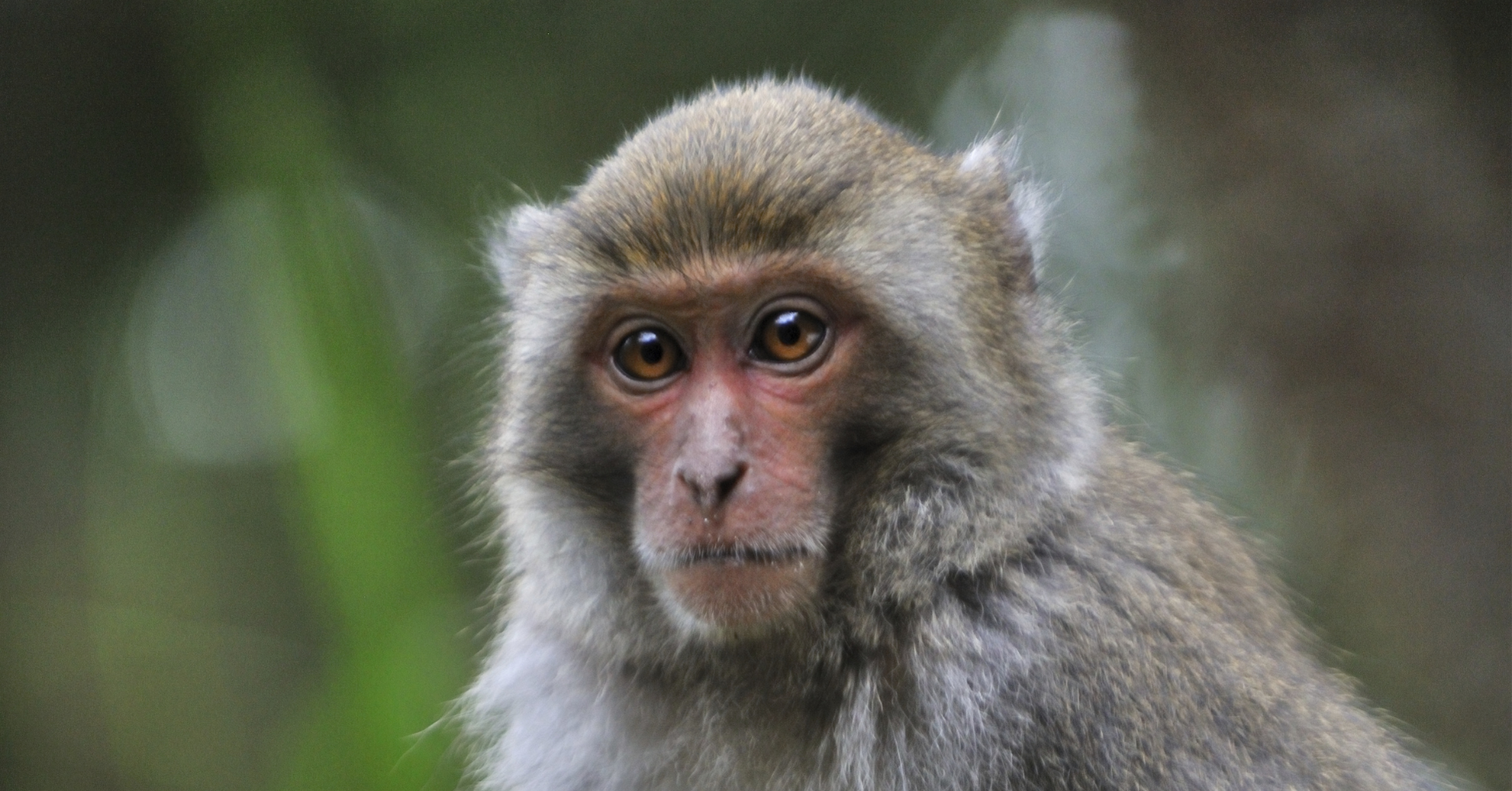
The Animal Research Industry’s Attack on Monkey Conservation
On Monday, the International Union for Conservation of Nature (IUCN) ruled against the animal research industry, in favor of continuing to recognize human harms to long-tailed macaques for now. But the fight is far from over.
In June and September of last year, the National Association for Biomedical Research (NABR) – an animal research industry front group and “mouthpiece” that was literally formed to combat the animal rights movement – submitted petitions to the IUCN asking that long-tailed macaques no longer be listed as “endangered”.
NABR did this in response to the U.S. Department of Justice’s investigation into “an international conspiracy to smuggle . . . long-tailed macaques into the United States for experimentation”; the U.S. Fish and Wildlife Service’s (USFWS’s) rejection of an international shipment of long-tailed macaques; and the submission of a petition to USFWS – signed onto by Rise for Animals – that asked for long-tailed macaques to receive Endangered Species Act protection. The USFWS petition cited as strong support for its request the IUCN’s designation of long-tailed macaques as “endangered”, and – because NABR could not directly undercut the petition itself – NABR appears to have conceived of an end-run around it: asking the IUCN to roll back its designation and, thereby, weakening support for the petition.
The USFWS petition is still pending and, unfortunately, in some ways, so, too, is the IUCN designation.
Even though the IUCN ruled that long-tailed macaques’ “endangered” listing would be retained for now, it also ordered a reassessment of this status. Troublingly, it did this despite concluding that “there appears to be adequate evidence to support the current” listing.
Concern becomes further magnified by NABR’s response to the IUCN’s determination. Indeed, NABR issued a statement “commend[ing] the [IUCN]’s decision to reassess the ‘Endangered’ designation” and expressing excitement about “‘working with the IUCN to ensure the scientific integrity of its processes.’”
The NABR is a politically- and financially-motivated lobbying group that exists to defend and promote animal research – not, in any way or for any purpose, to facilitate “scientific integrity”.
NABR continues to espouse that long-tailed macaque populations should not be protected by the IUCN because, really, “the species is used extensively in biomedical research”. (Put differently, as Dr. Joanna Makowska has explained: “‘NABR apparently believes that when its industry benefactors have issues with endangered species protections, those protections should be gutted,’…”) While the assertion that a species should not be protected because you want to continue exploiting it may be plain and brazen, it is – of course – far from anything bordering cogent, much less scientific.
Still, and as it always has, NABR continues throwing around phrases like “science-based” while it irrefutably and strategically ignores actual science – par for the course in its shameless pro-vivisection advocacy.
Earlier this month, an international research team interested in conservation (not, like NABR, torturing monkeys in labs) published a report detailing that long-tailed macaque populations are in “severe decline” and “near extinction”.
The more than three dozen scientists who co-authored the report represented “many countries, universities, and conservation organizations” and, together, designed and employed a “robust” and “flexible” approach to providing the first comparisons of “population estimates across multiple countries and regions”.
Their conclusion? Long-tailed macaque populations have suffered “a sustained decline . . . consistent with observed trends across recent decades” and are “80% lower than expected”. Importantly, they noted that their approach, at worst, overestimates the long-tailed macaque population – meaning long-tailed macaque populations may have declined even more than, but not less than, 80%.

This is the science, and these are the facts, regardless of what NABR says.
Other important and telling facts – in this case, about NABR – include:
- “[F]our of the five top donors to [NABR’s] sister organization, the Foundation for Biomedical Research, have all supplied, or experimented on, nonhuman primates”;
- NABR’s current members include “the largest supplier [Inotiv] and user [Charles River Laboratories] of research monkeys”; and
- NABR has not named the “‘recognized, independent scientists’” it claims to have relied on for its IUCN petitions, save one – who authored a paper funded by NABR that disputes the IUCN’s conservation status for long-tailed macaques: a “professor of aquatic and fisheries science” who “has received substantial funding from the fishing and seafood industry throughout his career” and “ has authored several papers challenging the data on fish population declines”.
We must continue to fight back against industry cooptation of long-tailed macaque conservation, and we must keep the pressure on the agencies with the power to better protect other-than-human animals.
We are the only remaining hope for the surviving long-tailed macaques, including those trafficked by and into laboratories.
Share this page on Facebook or X (Twitter)